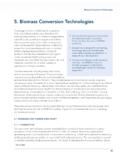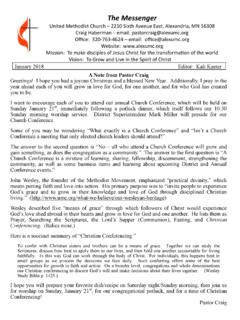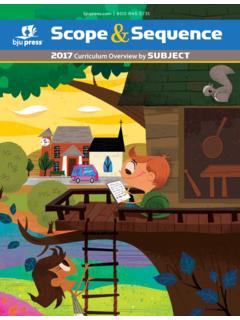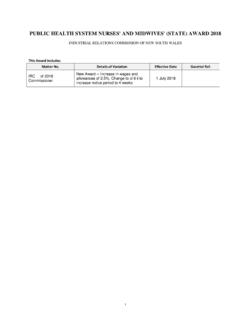Transcription of A Second Grade Inquiry Unit
1 A Second Grade Inquiry unit : Nothing But Nets Written by Peggy Dyckman Dr. Emily Alford Holy Family Catholic Academy 2515 Palatine Rd Inverness, IL 60067 Archdiocese of Chicago, IL Economics Inquiry Learning Mini- unit First Grade Curriculum Index Description of Second Grade Challenge Dividers to Separate unit Components Letter to Students from the NothingButNets and the UN Foundation Inquiry -Based Learning Planner Lesson Plans Non-Fiction Reading Resources: Goods/Services chart Lemonade Game Record Sheet Malaria and the Economy, Peggy Dyckman and Emily Alford All About Malaria, Peggy Dyckman and Emily Alford Bed Nets Save Lives, Peggy Dyckman and Emily Alford unit Overview: description of Second Grade challenge Second Grade students will receive a special letter from NothingButNets and the Foundation asking them to help tell people about malaria and how to end this terrible disease.
2 Attached is a curriculum plan for a mini- unit that focuses on economics, how malaria affects economics in Africa, and ways in which people can help eliminate malaria and improve economic conditions. The lessons are designed to enhance a primary unit on economics, usually taught across the United States in first or Second grades (1, 2). The attached curriculum meets the content established by State Goal 15: Understand economic systems, with an emphasis on the United States. Standard A. Understand how different economic systems operate in the exchange, production, distribution and consumption of goods and services. The curriculum is color coded, linking standards and benchmarks to teaching activities. These materials include activities that engage the students as well as provide other resources (or links to specific websites) necessary to complete the unit . The mini- unit culminates with students working in teams to create a book or brochure explaining the economic burden of malaria and ways in which a school can get involved with a solution.
3 After playing the Internet game, Lemonade Stand (optional), 2nd graders run a lemonade stand earn money for their service project. (1) All references are made to Illinois State Goals and Standards. Please refer to your specific state s goals and standards for reference. (2) The curriculum also meets the content established by the Office of Catholic Schools, Archdiocese of Chicago Curriculum Framework. Holy Family Catholic Academy 2515 Palatine Rd. Inverness, Illinois 60067 Dear Students, The United Nations Foundation s Nothing But Nets Campaign needs your help. People in Africa and other parts of the world are dying every day because they were bitten by a mosquito and injected with a parasite. That parasite causes fever, pain, and sometimes, death. We know that in Second Grade you study economics. You learn about needs and wants, goods and services, opportunity costs, and interdependence. People who have malaria are very, very sick and don t feel like working or going to school.
4 Because of this, they can t earn as much money as people who aren t sick. Their illness prevents them from enjoying the same level of income as people in countries that do not have malaria. We would like you to work in teams to create a brochure that can be given to parents and people in your community. Your materials should tell about how economics affects people s lives. We need you to research economic ideas and ways in which people could raise money to help protect people from malaria. Teaching and Learning Events Opening Activities Estimated time: 1 hour Engaging the Learner Active, intellectual engagement of students results in successful instruction.
5 The opening activities for this series of lessons are designed to introduce big ideas for the content and engage students in discovery and authentic tasks. A strategy employed to accomplish this task is to design activities that help learner s make connections between the curriculum content and their experiences. A learner s experience includes interests, cultural experiences, values, and beliefs. With these above points in mind, begin the unit by completing the following opening activities. Teaching and Learning Event: Opening Activity The unit begins with the teacher introducing her dog (or other pet) to the class through pictures and stories. She asks them to think of what a pet needs. Through this discussion the students are introduced to the difference between wants and needs. Description and Detailed Sequence of Activities: The pet is introduced to the class. Ask the students to think about what the dog needs. Organize students into teams of 3 or 4 and give each team a picture of the pet with room around the picture for brainstorming lists.
6 Ask each team to list as many of the pet s needs as they could think of. After 10 minutes have them share their lists with the whole class. Record some of the ideas on the board or chart paper. After all the teams have shared, write the words food, shelter, and water, on the board or chart paper. Then ask which of the ideas recorded on the board or chart paper are needs. Circle those ideas that are needs. Teams then use a highlighter to mark the words related to food, shelter, and water. Emphasize that these are ONLY needs that a dog really has and all the rest are wants. The class then has a brief discussion of the difference between wants and needs. Explain how dogs can survive without things it might want (such as a bed or a collar). Teaching and Learning Events Social Studies Goals, Standards, and Benchmarks Estimated time: 1 hour State Goal 15: Understands economic systems with an emphasis on the United States. Standard A.
7 Understand how different economic systems operate in the exchange, production, distribution, and consumption of good and service. Compare needs and wants and goods and services for people in our economy to that of a developing nation. Teaching and Learning Event: Letter from NothingButNets and the United Nations Foundation The topic of Malaria and the impact that it has on children around the world is brought to the students attention through a letter from NothingButNets and the United Nations Foundation. After reading and discussing the letter, the class develops a list of what the NothingButNets is asking them to do, and then makes a list of questions that will help guide them as they research and create their team brochures. Description and Detailed Sequence of Activities: Ask students to sit quietly and watch the clock. After 30 seconds announce, One child has died. Students start building questions in their minds as you continue announcing, after every thirty seconds, that another child has died.
8 Now, hand each student a copy of the letter from the United Nations Foundation and read it aloud. Do not mention the name of the animal until it is revealed in the letter. NOTE: Be sure to explain that the mosquito is a special kind and not found in the United States. Re-read the letter and discuss the major points with your students. Now complete Task Analysis as detailed below. In order to set parameters for content and focus on the challenge, complete task analysis using the following strategies: 1. Pin or tape two pieces of chart paper on the wall. Label the first one, Task Analysis and the Second sheet, Questions we have to answer. 2. Ask, What are we being asked to do (see the model on the following page)? The answer to each question is found in the body of the letter from NothingButNets and the United Nations Foundation. Response; We need to create a brochure that explains the economic burden of malaria and ways in which a school can get involved with a solution and run a lemonade stand to earn money for this service project.
9 Write the student s response on the first sheet of chart paper. Then probe further by asking, What will the money be used for? Student response, The United Nations will purchase mosquito nets to protect people. Add this response to the first statement. 3. Ask, What information do we need to include in our brochure? Student response, We need to learn about mosquitoes and malaria. Write this response under the task on the first chart. Ask, What else do we need to learn about and include in our brochure? response, We need to include information about NothingButNets and the UN Foundation. Add this response to the first chart. Ask, Is there anything else we need to include? Student response, We need to figure out how to set up a lemonade stand/ business so we can raise money to buy bed nets. Again, add this response to the chart. Finally, ask, What questions do we have now? List the questions on the Second chart.
10 See model charts below. Chart paper on wall Task Analysis We must create a brochure that tells people about: the problem of malaria how malaria affects the economy bed nets that protect families from mosquitoes the mission of the Foundation and Nothing But Nets to purchase nets and eliminate malaria Questions we have now (samples): What is malaria? How is malaria spread? What are bed nets? How does malaria affect the economy? What can we do to stop the spread of malaria? How can we encourage others to take action? Teaching and Learning Events Social Studies Goals, Standards, and Benchmarks, continued Estimated time: two hours over a two day period State Goal 15: Understands economic systems with an emphasis on the United States. Standard A. Understand how different economic systems operate in the exchange, production, distribution, and consumption of good and service. Compare needs and wants and goods and services for people in our economy to that of a developing nation.





